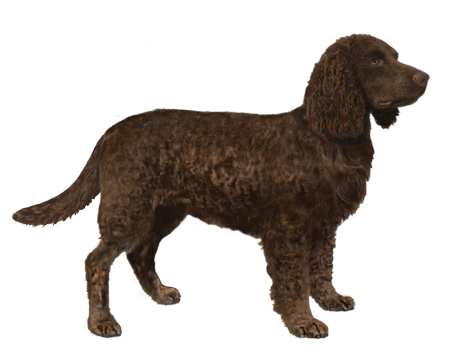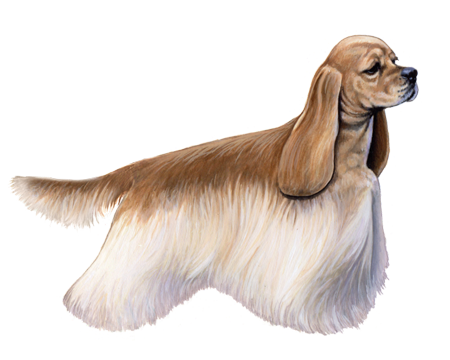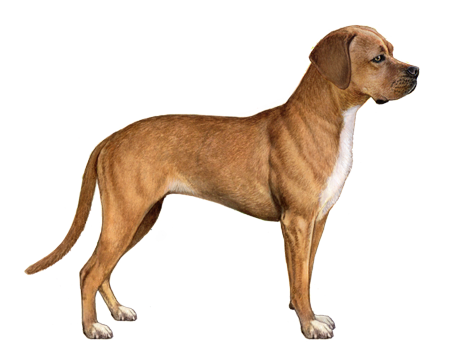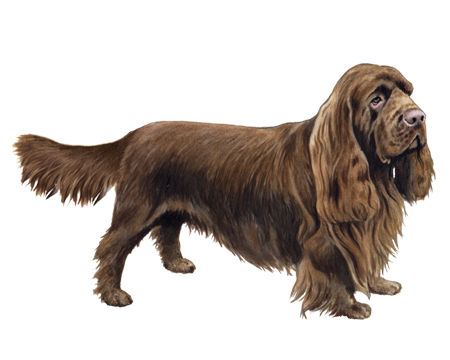
Brittany
The Brittany is an intelligent, lively, gentle, and affectionate breed skilled in hunting and retrieving. Thanks to the breed's good temperament and desire to please, Brittany's make great pets for people looking for an active, energetic dog.
Interested in discovering if your dog is a Brittany?
Check out Wisdom Panel's DNA tests.

Brittany Traits
General Appearance
The Brittany is a compact, medium-sized dog with characteristic ruggedness. As a leggy breed, the Brittany is strong, agile, and quick.
Coat and Colouring
Brittanys have dense coats that are flat or wavy but never curly. Their ears have a little fringe, and the front and hind legs have some feathering.
Brittanys' coats come in either orange or liver with white. The white may be ticked. In liver-colored dogs with orange highlights, tricolors may exist. The Brittany never has any black in the coat. Thus, the nose is always liver.
Distinctive Physical Traits
The Brittany's eyes are well set in the head. They have heavy, expressive eyebrows that protect them from briars while hunting. Brittanys' legs are so long that their height at their shoulders is the same as the length of their bodies. The breed has either no tail or one that's about four inches long.
Brittany Temperament
The Brittany is well-suited for an active, lively household. It's a happy, sweet-natured, energetic breed that's always up for an adventure.
When socialized from puppyhod, Brittanys make excellent family pets. But even with proper socialization, they should be closely supervised around young kids. Their exuberance could lead to accidental injury. Brittanys typically get along great with pets and other dogs. And they are generally outgoing around strangers.
Because of their stamina and endless energy, Brittanys need above-average daily exercise—both physical and mental. But when they have a proper outlet for their energy, they tend to be calm, sweet-natured house dogs.


Brittany History
Despite earlier records of a dog strikingly similar to the Brittany, experts believe this breed dates back to 1865. In an area of Brittany, France, referred to as Callac, the breed arose mostly as an accident.
When British nobility visited France to shoot partridge and woodcock, they took their dogs with them. However, they couldn't bring their dogs back home due to quarantine laws. The abandoned dogs started breeding with local spaniels, creating the Brittany.
Brittanys quickly grew popular when locals recognized they had a keen sense of smell, excellent tracking ability, and general aptitude for work.
The breed standard was established in 1907. The Brittany first came to the United States in 1931. And in 1934, the AKC recognized the Brittany Spaniel as a breed.
Because the U.S. dog's hunting style is more like a pointer than a spaniel, in 1982, the Brittany Spaniel became simply the Brittany. Today, this breed yields one of the most versatile bird dogs—highly capable, whether hunting duck, woodcock, pheasant, or partridge.
Brittany Care
Nutrition
Brittanys need high-quality food that's appropriate for their specific life stage (e.g., puppy, adult, senior). A diet formulated for medium-sized dogs is a great option to consider.
To keep their weight in a healthy range, closely monitor their food intake. Avoid accidental overfeeding by using a standard measuring cup to measure meals. And be sure to take treats into account. As a guideline, treats should make up no more than 10% of their daily calories.
Grooming
Twice-weekly brushing with a soft brush is typically enough to maintain a Brittany's stylish coat. You should check ears regularly and clean them if you find any debris or wax build-up.
Though nails will be worn down during regular activity, it may not be enough to keep them at an ideal length. So, inspect nails frequently, and trim them as needed. Nails that get too long can lead to pain or issues with walking or running.
As all dogs do, Brittanys require regular dental care, including at-home teeth brushing and professional dental cleanings. Maintaining good dental hygiene is important for their overall long-term health. The sooner you get them into a good dental care routine, the better.
Exercise
Brittanys are tireless dogs that require significant exercise. True to their beginnings, hunting and retrieving are their favorite ways to burn off energy. But there are plenty of other activities that make them happy—especially when their favorite human is by their side.
Brittanys enjoy dog sports such as agility, competitive obedience, field trials, and tracking events that take advantage of their keen sense of smell. They also like fast-paced walks and hikes, and they make great on-leash jogging buddies. Because they get along well with most dogs, they're also a great candidate for the dog park.
Training
Brittanys love to please and respond to instructions, so they are relatively easy to train. Because they have a sensitive nature, they respond well to motivational tools such as treats or favorite toys in a reward-based approach to training.

Brittany Genetic Health Conditions
-
Complement 3 Deficiency
Complement 3 Deficiency (C3D) is a disease that causes severe immunodeficiency, leaving affected dogs vulnerable to infections.
Knowing if your Brittany is a carrier or at-risk for these conditions can help you and your veterinarian plan for your pup's lifelong care. With Wisdom Panel™ Premium, you can get results for over 200 genetic health tests.
Breed Group
Sporting
The sporting group breeds are incredibly diverse in personality and appearance, but can be characterized as very sturdy. They were developed to work closely with people and in general have a very responsive nature and high intelligence.


























































